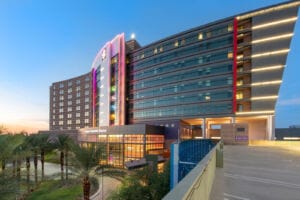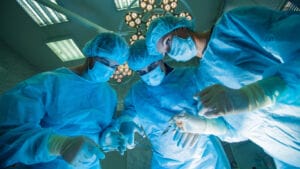Following a national search, Dr. Harris was selected to establish and lead the AHSC Biorepository, which will provide centralized, state-of-the-art specimen collection infrastructure and offer concierge-level technical and regulatory expertise to principal investigators engaged in research biospecimen activities.
Dr. Harris brings more than 20 years of experience in biobanking to the repository, including establishment of the first cord blood stem cell bank in the United States in 1992. He also has extensive experience in adult stem cell banking, as well as the banking of other cells and tissues.
“I am excited by the opportunity to position my scientific research and technical and regulatory knowledge in the area of biospecimen collection and biobanking toward the development of a critical research resource for AHSC faculty and trainees,” said Dr. Harris. “The AHSC Biorepository will be a catalyst for research by providing the strategic collection and timely dissemination of biospecimens to investigators.”
Dr. Harris joined the UA faculty in 1989 after four years at the University of North Carolina. He has been actively involved in stem cell research and has received extramural funding from the National Institutes of Health, the American Cancer Society and the U.S. Department of Defense.
Dr. Harris will bring an experienced team of scientists to the AHSC Biorepository, including Michael Badowski, PhD, associate research professor, and Angela Muise, research specialist senior. Dr. Badowski has 10 years of experience in biobanking, while Muise has three years of laboratory experience in the field.
“It is wonderful to have a faculty member with David’s technical expertise and applied approach to biobanking agree to lead the AHSC Biorepository,” said Joe G.N. “Skip” Garcia, MD, UA senior vice president for health sciences and interim dean of the UA College of Medicine – Tucson. The AHSC Biorepository is a critical resource to the success of our translational research enterprise, our Clinical Translational Science Award (CTSA) grant application and the growth of our sponsored research portfolio.”





